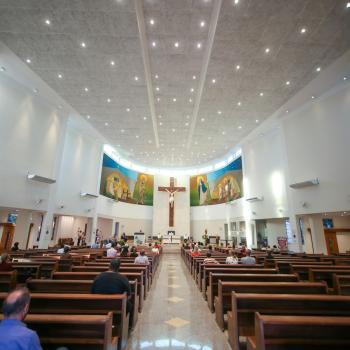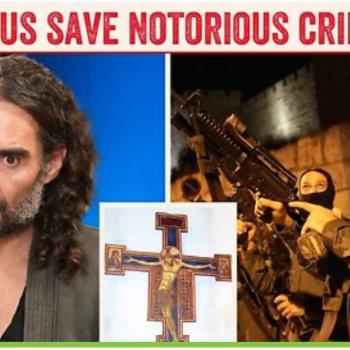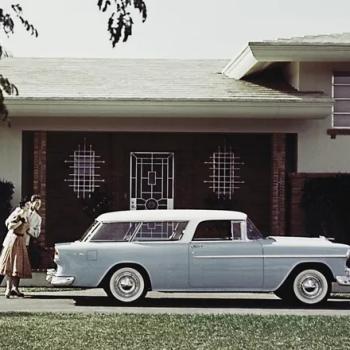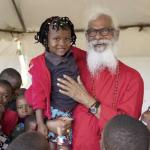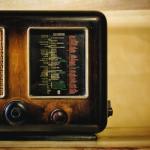Christian leaders and institutions must come to the defense of those targeted by white Christian nationalists.
About a month ago, there was this whole embrolio surrounding pastor Josh Howerton of Lakepoint Church in Rockwall, Texas, after Sheila Gregoire posted a clip on X from a recent sermon of his, where he offered a rather problematic Wedding night scenario as a sermon illustration, which Howerton later defended as a “joke”.
Beth Moore wrote an insightful thread in response to these events, in which a key element of Moore’s original post was this paragraph:
I want to speak only to this one thing. Until you’ve experienced the hammering and harassment of the hyper fundamentalist, one may think and even boast that he or she couldn’t care less what people say and that you’re your own man/woman but then you get tested to such a degree that you then know why all those people have bowed to it.
Following Moore’s post, Kristin Du Mez offered a compelling thread that sympathized with Beth Moore. One line from Du Mez’s follow-up thread struck me. In her second post, she remarked, “And come to the defense of those targeted.”
That line hit me hard because of the costs I’ve felt since last October.
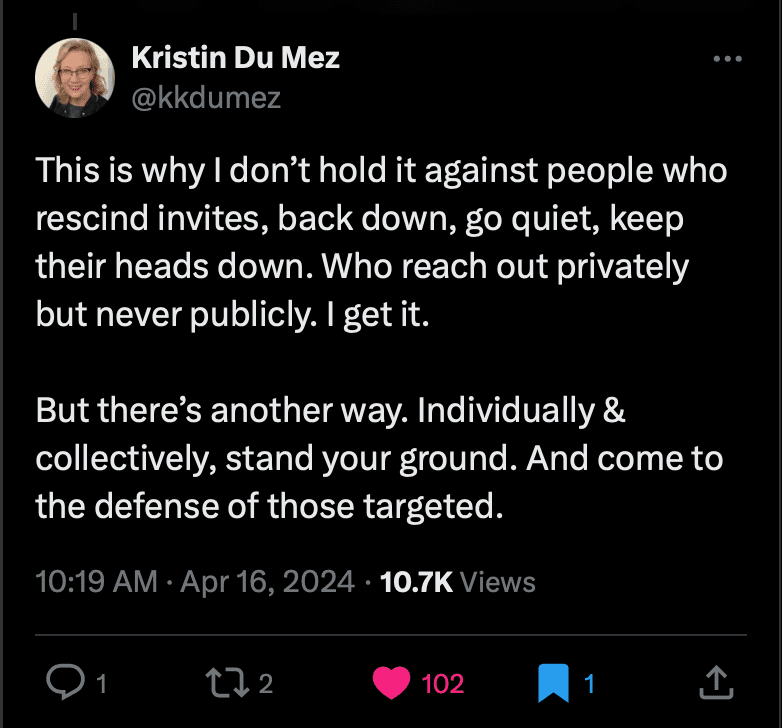
– Kristin Du Mez
The “hammering” I Endured on Social Media
Immediately after the Hamas attack on Israel I wrote a column for the Anxious Bench entitled, “The Israel-Hamas Attack and the Evangelical Christian Response.” My article put radical white Christian nationalist voices alongside moderate evangelicals. My comparison found little distinction between the two voices’ responses to the Hamas attack. Both seemed to crave a genocidal rage against Palestinians. Both wished to turn the Gaza Strip into a “parking lot.” Months later we have witnessed how the combined efforts of the U. S. military industrial complex and Israel Defense Forces have accomplished precisely that.
The following Friday evening, I crafted a social media post (since retracted) in response to the ongoing “Just War” narrative on social media. My original intent argued that it is easy to center voices from positions of safety and privilege. However, it’s more pertinent to center voices that are close to the carnage of hostilities.
Nonetheless, we continue to privilege white, western voices in these conversations, which comes as no surprise since those voices have policed the world, intervened in trans-national affairs, and profited through the arms production that undergirds escalating global violence.
When I crafted the post, I knew it would touch a nerve. That’s what thoughtful public work does. I had no idea how much it would cost my family.
I discovered the next morning that the post had awoken the angst of detractors. Notably, Andrew Walker, the ethics professor at The Southern Baptist Theological Seminary, set in motion the ire of a cadre of critics, including Mollie Hemingway, William Wolfe, Tom Ascol, and Meghan Basham.
It was Wolfe’s response that made me anxious for my family’s safety and security. He promoted a #WheatonisWoke hashtag in order to get me fired. It was not the first time he did this. A year prior, after the Dobbs Decision, he targeted Kristin Du Mez, Warren Throckmorton, and me, demanding our institutions fire us.
This company of white Christian nationalists caused a mob to attack me for being “racist” and “sexist”, which caused a stir of doxing and hate language from alt-right and anon accounts, calling me “racist bigot”, “cuck”, “beta boy”, “libtard”, “little racist lunatic”, and suggesting I take my kids pictures off the internet so they aren’t harrassed. The ratio of comments and quote-posts outgrew likes. Hundreds of comments from anon and alt-right accounts employed vivid hate speech against me. Upon being reported, Elon Musk’s X found nothing about these posts that was outside the rules of X.
As I observed this chatter with my wife over Saturday brunch, I became uneasy, not just for my family but for Wheaton College. I never intended for my post to reflect poorly on my employer. I decided to retract the post. I posted a brief thread that stated I would take a break from social, and I made a formal retraction statement:
I have retracted the deleted post because it has been misinterpreted as being racist and sexist. I deny that was ever my intent. My original post observed the degree by which a group had power and prevalence and made no judgment on whether that should or should not be the case.
I thought things would quiet down after retracting the post but people like Tom Ascol shared screenshots of my OP (original post). I then changed my handle, made my account private, and altered my bio. I removed all affiliations and left my bio with basic information and the statement: “My posts are my own opinion and represent no one else.”
The Aftermath of the “Hammering”
On Sunday my Department Chair phoned me. Then a face-to-face meeting followed on Monday, in which my Department Chair prayed for me, encouraged me, and affirmed my place in our history department. A day later the Faculty Vice-Chair visited me and shared how these events coincided with the Trustee lunch. The President, Provost, and Faculty Vice-Chair watched everything unfold over lunch, including my swift reaction to retract the post, which I was commended for doing.
These conversations occurred in the shadow of recently watching the Same God documentary on Larycia Hawkins, a psychology professor at Wheaton College, who had been removed from faculty, after a viral social post instigated an organized campaign to eliminate her from Wheaton’s faculty.
Frankly, before my Department Chair meeting, I thought I wouldn’t finish my contract as a Visiting Assistant Professor. I assumed they’d let me quietly finish the semester, and I wouldn’t return in the spring.
I was encouraged by the Wheaton faculty and administrators, who privately sympathized with my plight. They individually affirmed that my controversial post was not outside the bounds of liberal discourse and academic freedom, neither was it racist nor sexist.
Nonetheless, I publicly stood alone. No one came to my defense when an organized campaign of white Christian nationalists targeted me.
At the time, I didn’t bother to reason with the unreasonable “hammering” on my post. Clearly none of my critics—even the elite, intellectual ones—understood “white gaze” and how it worked, especially those arguing that Just War Theory was credited to the African Bishop Augustine. Nor did detractors understand the definition of racism and sexism, for a white male reflecting on white maleness is neither self-loathing nor a power deferential, where a dominant race or sex oppresses another one.
Yet, I wondered why few if any on social or my institution publicly supported me, especially during the “hammering”? White Christian nationalists bullied me, and I experienced bystander effect as they did so. Beth Moore and Kristin Du Mez since have helped me make sense of it. They helped me recognize the phenomenon of bystander effect on social media and how vital it is to come to the defense of those targeted and enduring the “hammering.”
Christian living cares, protects, and strengthens the vulnerable; christian living comes to the defense of those targeted. When we see injustice, we should respond swiftly. We should feel deep in our bones that feeling of the “hammering”, and we should prevent it from happening to others. Undoubtedly, many Good Samaritans have been made in ditches after being ambushed and left for dead. The ones who know how to protect people from the “hammering” are the ones who first endured the “hammering”; it’s their calling to stick up for the vulnerable rather than enable predators.
At the time, I saw why Wheaton College colleagues and the institution failed to come to my public support. It was a “duck and cover” situation. Yet, offering after the fact sympathy for enduring bullying and abuse doesn’t prevent bullying or abusers. Incentivizing the bullied and abused to quietly endure the pugilistic impulses of white Christian nationalists, the patriarchy, or other serial abusers and bullies only fuels their energy to predate on the vulnerable. It is defining moments like these where settling for private support reveals institutional fragility.
The sociologist, John Hawthorne, astutely put it well in his recent Substack. Institutions will pay immeasurable invisible costs for failing to respond to the organized campaigns of white Christian nationalists. Students will transfer to other schools and not recommend their schools to prospective students; alumn and donors will fund endowments from schools they trust.
Candidly, the failure to publicly support me, broke both my heart and will. The pseudo-support that exists behind closed doors and in hushed tones falls short of what is required to address threats from white Christian nationalists. This was the tipping point when I realized I no longer desired to give my time, talent, and energy where I didn’t feel protected and supported.
It is time that Christian college and university leaders take seriously the haunting words of C. S. Lewis in The Weight of Glory:
It may be possible for each to think too much of his own potential glory hereafter; it is hardly possible for him to think too often or too deeply about that of his neighbour. The load, or weight, or burden of my neighbour’s glory should be laid on my back, a load so heavy that only humility can carry it, and the backs of the proud will be broken. It is a serious thing to live in a society of possible gods and goddesses, to remember that the dullest and most uninteresting person you can talk to may one day be a creature which, if you say it now, you would be strongly tempted to worship, or else a horror and a corruption such as you now meet, if at all, only in a nightmare. All day long we are, in some degree, helping each other to one or other of these destinations. It is in the light of these overwhelming possibilities, it is with the awe and the circumspection proper to them, that we should conduct all our dealings with one another, all friendships, all loves, all play, all politics. There are no ordinary people. You have never talked to a mere mortal. Nations, cultures, arts, civilisations—these are mortal, and their life is to ours as the life of a gnat. But it is immortals whom we joke with, work with, marry, snub, and exploit—immortal horrors or everlasting splendours. (C. S. Lewis, Weight of Glory [HarperCollins, 1949, revised 1980], 45–46)
Immortal beings build and sustain Christian institutions. While Christian institutions are mortal, their mortality reflects the trajectory of the immortals building them. Are they fashioning mortal horrors on earth, as they will be in hell? Or are they fashioning mortal splendors on earth, as they will be in heaven? What are Christian colleges and universities becoming? How are they forming the inner life of students, staff, and faculty? Failure to have moral courage to come to the defense of those targeted will lead to dire consequences of immortal horror proportion.
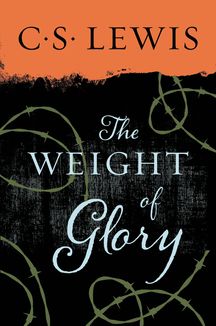
The Organized Effort to Cancel Liberal Discourse
This is why I am raising wider awareness of white Christian nationalists organized efforts to cancel liberal discourse. Last week many discovered how extensive these campaigns to cancel liberal discourse are in conservative Christian spaces, especially Christian private colleges and universities. The RNS coverage of Matt Warner’s removal from Grace College raises the alert of these efforts. Kristin Du Mez’s substack to college Presidents is a clarion call to preserve liberal values of discourse, academic freedom, and keep open channels of communication between the right, left, and those who occupy the courageous middle, as Shirley Mullen has eloquently put it.
Permit me to highlight how these organized efforts affect individuals, while misrepresenting them, by sharing more from my recent experience. Some might call me fragile, but coming out of the “hammering” I experienced last October, I hadn’t realized I needed to go to therapy. In hindsight, signs pointed in that direction. I was affected mentally and emotionally. At times, it was difficult to focus on lecture preparation or be present with my family. I didn’t sleep well, my nutrition slipped, and I stopped exercising.
Not long after these events, I discovered I had been added to the Turning Points Professor Watchlist for Wheaton College. When students brought this to my attention, it made me more alarmed for Wheaton College and my family.
These watchlists are threats. They are instruments of white Christian nationalism intended to instill fear in and of institutions and individuals. They are techniques of social control, with aims to divest people of liberty and freedom. Often times, they are deliberate misrepresentations that flatten the complexity of individuals and their values.
For instance, this watchlist misrepresents my views on the Second Amendment. Because I made an argument that the Second Amendment is undergirded by a history of protecting white supremacy does not mean I oppose Second Amendment rights. Do I believe we need stronger restrictions? Absolutely. Do I believe we should arm teachers as a deterrent for school shootings? Absolutely not.
Following the state of Tennessee passing legislature to arm teachers, I published a thread on this decision. I indicated that this legislation helps no one but the small arms industry, which Beretta and Smith and Wesson are both headquartered in Tennessee. The costs of nationwide arming, continual training, and insuring these efforts would cost taxpayers annually between one-half and plausibly over a billion dollars. Brand Evangelicals (Brazos Press, forthcoming) will address this in its chapter, “Sacred Cows Are Cash Cows: Evangelicals and Their Guns”, which will cover the evangelical alliance with the military industrial complex and small arms industry.
However, to complexify my views, the Turning Points Professor Watchlist does not document the independent technical services contract work I did for the State Department and the Department of Homeland Security. It does not account for the FBI challenge coin I keep in my office and how I obtained that honor. It certainly does not account for my FOID card, the firearms kept in the safe by my bed for home defense, and the time I put in at the range practicing marksmanship. It is this personal experience with firearms and my role as an educator that adds to my reticence for arming educators and my authority on knowing the costs, time, and training necessary to have the muscle memory and mental acuity to forcibly deter an attacker in a school shooting. Clearly, I’m not opposed to ensuring our national security, nor am I opposed to a person’s right to defend their home and family, but I want stronger restrictions on gun ownership.
All that to say history is as complex as the subjects it covers. Maintaining a liberal democracy is a delicate balancing act because we have varied experiences, principles, and values. Moreso, our nation’s history has been influenced and shaped by the exploitation of resources necessary to assert and maintain global military power. These realities complicate the possibility of a harmonious social dimension that has breadth and depth, ethnically and economically.
Reinhold Niebuhr summed it up well in The Irony of American History:
One difficulty of a nation, such as ours, which manifests itself long before we reach the ultimate dilemma of warfare with weapons of mass destruction, is that we have reached our position in the world community through forms of power which are essentially covert rather than overt. Or rather the overt military power which we wield has been directly drawn from the economic power, derived from the wealth of our natural resources and our technical efficiency. We have had little experience in the claims and counter-claims of man’s social existence, either domestically or internationally. We therefore do not know social existence as an encounter between life and life, or interest with interest in which moral and non-moral factors are curiously compounded. (Reinhold Niebuhr, The Irony of American History [University of Chicago Press, 1952, 2008], 41)
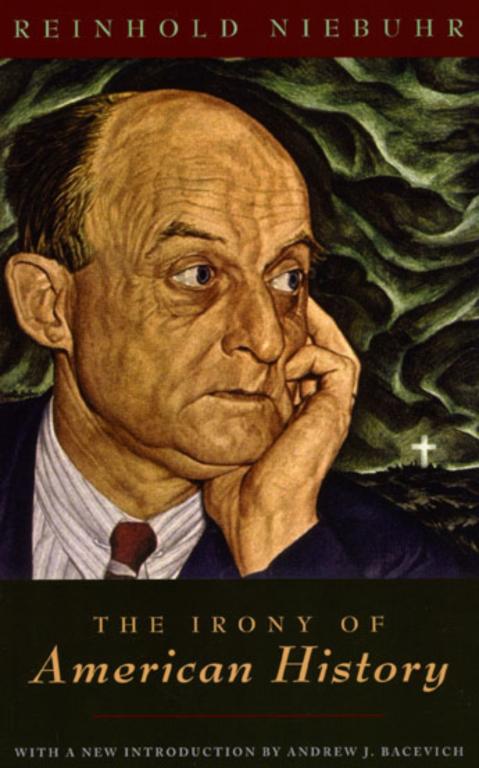
Protecting and maintaining power, rather than sharing it liberally within a global community, is instinctual for white Christian nationalists. They value preserving privilege and power at all costs, through fear and intimidation that divides people, fashions imagined foes, and marginalizes those outside the ethnic ideal. These forces are organizing campaigns to cancel liberal discourse nationwide and strategically prevent it in our colleges and universities. Naming these campaigns as such, as organized white Christian supremacist and nationalist efforts, is a first step to dismantling this idolatrous worldview and divesting it of its influence in orthodox Christianity. A second step is for Christian institutions and leaders to come publicly to the defense of those targeted by white Christian nationalist campaigns.
For a helpful and accessible resource that soundly addresses this matter, I urge Christian institutions and leaders to read Andrew Whitehead’s American Idolatry: How Christian Nationalism Betrays the Gospel and Threatens the Church (Brazos, 2023). Whitehead’s research and recount of the disparate strands of the white Christian nationalism that has subversively and intrusively penetrated every level of the church and its institutions is sobering, and his antidotes for dismantling these idolatrous intrusions and divesting the Church of them are instructive.
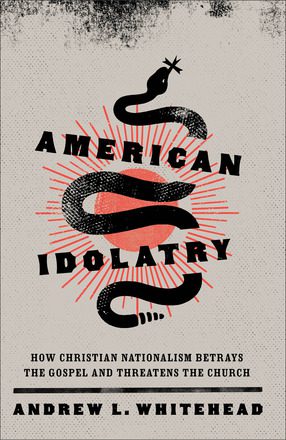
In conclusion, Christian leaders and institutions must come to the defense of those targeted by white Christian nationalists. By Grace College caving to the intrusive and organized efforts of white Christian nationalists, every college and university in the CCCU is more vulnerable to white Christian nationalists asserting their power and influence. Now is the time for leaders and institutions within the CCCU to practice courage, preserve the independent free-thought and academic freedom of their faculty, and protect the safety and holistic health of their staff, faculty, and their families as well.
Because when no one comes to the defense of the faculty and staff who are targeted, they do not feel safe and supported by their Christian institutions and leaders. Those faculty and staff will have no recourse but to take their talent to places that will come to their defense and offer safety and support.




